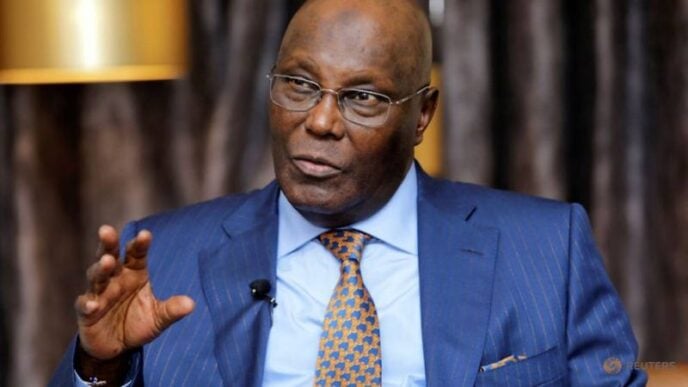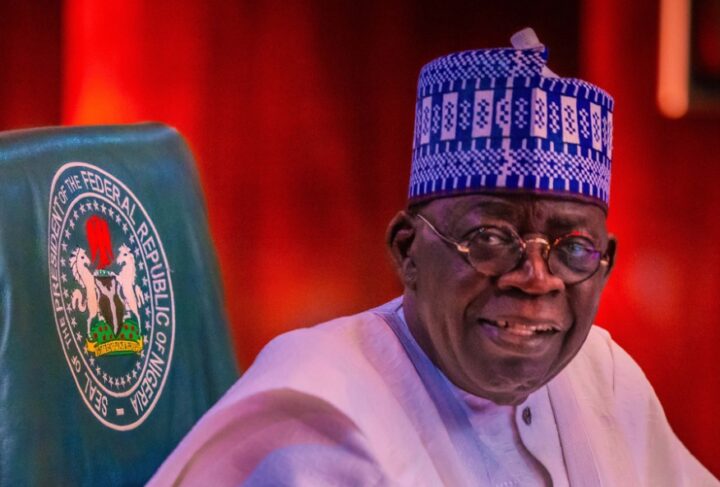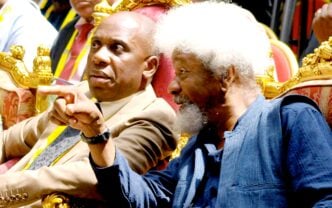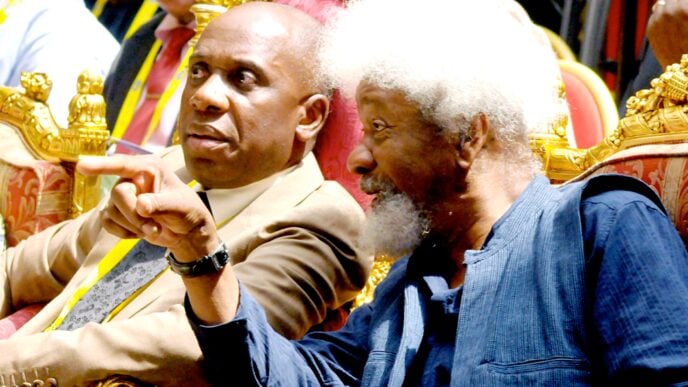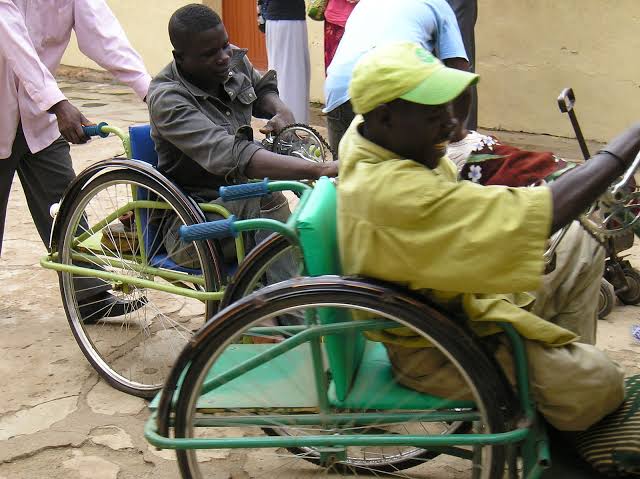Cancer is arguably one of the deadliest diseases in the world. Its diagnosis is often perceived as a death sentence. Some survive it, but many succumb. According to the World Health Organisation (WHO), nearly 10 million people died of cancer in 2020.
Scientists have developed medical treatments like chemotherapy to treat the deadly disease in its different forms. Other scientists are currently working on other methods to treat cancer and improve the lives of patients.
One such scientist is Oluwatosin Obisesan, a Nigerian doctoral researcher at the University of Kentucky, United States. She is passionate about developing a treatment that destroys cancer cells. Her PhD research focuses on discovering novel drugs that can control the dysregulated proteins in the body that are implicated in cancer.
In this interview with TheCable’s AYODELE OLUWAFEMI, Obisesan discussed her cancer research, motivation, and the potential of cancer drug discovery.
Advertisement
TheCable: Can you tell us about the details of your cancer research?
Obisesan: I am into cancer research with the major goal of discovering novel drugs for cancer treatment. The whole idea is to see how we can improve cancer treatments. Can we get better drugs? Can we get not just effective, but safe drugs so that we can overcome all the side effects that are associated with the current treatment pattern? We have some potent drugs in the clinic for patients to use. But the existing issue is that most time, when patients use these drugs, there are side effects, such as hair loss and nausea. Some of these drugs make the patient feel sicker or worse than the cancer itself — some patients never even get cured entirely.
The question is to see if we can improve what we have. We have come a long way, but we still need to do better so that patients can have a good quality of life while they are undergoing treatment. This is the general goal of what I am doing in the drug discovery and development area.
Advertisement
Specifically, I’m trying to explore the mechanisms of dysregulated proteins that are implicated in cancer. To break that down, I’m trying to trace or understand specific essential proteins. Proteins are important for cellular processes, some more than others. Now, some proteins are crucial for the cells in the body to grow. They drive or direct the way the cells divide, and when I say cells divide, that’s a basic mechanism for growth. The way we grow is by cell division — one cell divides into two, two into four. That is how you populate your cells.
But these things do not just happen randomly. They happen because some of these proteins are driving and controlling the process. Some of them are like checkpoint officers, drivers, and conductors. The point is to ensure that the cell is not just doing anything anyhow. But when disease comes in and with something like cancer, something goes wrong somewhere, and then the signals get lost. Sometimes, some signals are not received well. Sometimes, the signals are received, but on overdrive.
Now we want to understand where this problem is coming from, and we’ve been able to trace that to some key proteins. One of which is a protein that we call MYC. I study so many other different proteins; so my work is about figuring out what is wrong with these dysregulated proteins, the source of the dysregulation, and how we control it. Can we reset them back to a physiological state? Or if it is a lost case, can we destroy these proteins?
TheCable: You have been talking about proteins. Please explain your thoughts better in layman’s terms so that non-scientists can understand.
Advertisement
Obisesan: At elementary school, we were taught proteins as a class of foods, and examples were egg, milk, and beans. They did not explain that these foods are not simply proteins but sources of protein.
When you talk about proteins at the cellular level, think of them like building blocks. If you want to make a building, you need your blocks. You need your raw materials. Proteins are cellular building blocks. They perform many other functions essential for cell activities. Now, when you eat your beans, the beans are not protein, but the beans give you all the materials your body would need to string together to make the protein your cells need. That is why, when you eat your beans, you digest and break them down. By the time it’s breaking down, it’s breaking down to the most elemental structures, which we call the amino acids. Now, depending on what type of protein you need, your body can begin to string amino acids together to create that protein.
TheCable: What specific issues in cancer treatment in Africa that your research seeks to address or provide solutions to?
Obisesan: Cancer is a global menace. I think it is the second leading cause of death worldwide. In the United States alone, it is in the top three. So, cancer is one of the major causes of death. People are dying of cancer! Worse still, we don’t even have a definite cure for cancer. My work explicitly tries to solve two key problems. The first one is that we don’t just want to develop drugs. We are looking to develop drugs that can overcome the side effects of existing chemotherapy, and what I mean by that is that there are so many drugs out there being used to manage and treat cancer, but they have side effects. Patients undergoing these treatments have a low quality of life.
Advertisement
How are we going to do this? Let me first explain how these current drugs work. Most of the time, these current potent drugs are designed to go into the body and kill cells. However, they kill cells indiscriminately. We are saying we can figure out how to kill cancer cells and spare the healthy cells. That is why we are looking for these specific proteins, which have gone wrong in cancer cells but are performing well in healthy cells.
If we target these proteins, then it can help us drive our treatments towards cancer cells so that we can destroy just cancer cells, and healthy cells will be spared. When we do that, it’s like you are trying to kill malaria parasites. When you take anti-malaria drugs, they will kill the parasites, not the person. That’s what we’re trying to do. Can we kill the bad cells and spare the good cells? That way, we’re not just coming up with a treatment; we’re coming up with a tolerable, selective and safe treatment. People can have a good quality of life while going through this treatment.
Advertisement
Two, cancer is a whole complex game. There are different types of cancer. It is not simple because cancer is not just like COVID or malaria or something. It comes in different types. Some of them are very peculiar to a particular gender. So what would work for one kind of cancer may not work for another. If it is malaria, once you get an anti-malaria drug, it works for malaria. But when you get a drug that works for breast cancer, even within breast cancer, there are different types, which is weird — some cancers you can only treat with chemotherapy or hormonal therapy. There are many complexities to other kinds of cancer, which makes it difficult since we are fighting a war on like 1,000 different fronts.
Now, our research is into finding this solution. The MYC protein that I’m working on is one protein that has been identified to be implicated in driving about 70 percent of all these cancers. The majority of human cancers have this protein as the culprit. So, this protein is a bad guy, and that is why we are going after it, because we firmly believe, and research has shown, that for so many patients, if we can regulate this protein, then we have a way to treat their cancer, which is mind-blowing. That is one main protein that is driving the initiation and progression of so many different types of cancers. Now, can we regulate this? When we develop a drug that can target this protein, then we have an opportunity to treat the majority of the cancers.
Advertisement
TheCable: How do you think your research will positively influence cancer treatment
Obisesan: The potential is enormous, in the sense that if we can finally get a drug to the clinic, we can have a drug that can, like I mentioned earlier, help treat different types of cancer. It is not only breast or prostate cancer. We will have something that can work for multiple types of cancer, changing the field.
Advertisement
Then it is also helping us to overcome problems with the toxicity of existing drugs, which will also change the treatment landscape drastically. We have worked on some molecules that are showing improvements in animals. We see that the tumour shrinks when we treat animals with these molecules. So we are trying to improve these molecules to make them more potent and specific.
The goal is to develop this molecule further to improve it so that it can get out there and become something that patients can use in the clinic. That would drive down the cost of cancer treatment nationwide, including in the United States and Nigeria.
TheCable: How has your Nigerian educational and cultural background influenced your cancer research?
Obisesan: Yes, for sure. My Nigerian background has not only influenced this particular study, but it has also influenced my approach to research, particularly in medicinal chemistry. I grew up to experience some of these patients first-hand. I have personal experiences. My aunt actually died of cancer. Recently, my undergraduate advisor, who was a mentor and played a huge role in my decision to attend graduate school, died of cancer.
Personally, this is not just about writing papers and being in the laboratory. This is understanding that this is a problem that is affecting people’s lives. I understand what it means to lose people to or to have people even diagnosed with a disease like cancer. Nobody deserves to have their death sentence given to them, and have to be counting days until the sickness takes them. When approaching research from that angle, it is much different from when you’re approaching research just because you want to get a PhD.
This has definitely influenced my research approach, because my research approach is about thinking about the patient, thinking about how to help them. It is about getting the drug out there. Let us get something that will help these patients. Coming from a community like Nigeria, where medical healthcare is improving, but we still have a long way to go, there are still people who do not have access to quality healthcare. There are still many people who cannot afford quality healthcare. Some treatments are working, but they are just too expensive for people from where I come from, and that has also shaped my approach when we are finding remedies. We also have to find affordable remedies. That is the truth, because not everybody can afford very expensive treatments like some hormonal treatments, antibodies and others.
TheCable: After PhD research, what’s next?
Obisesan: I will be wrapping up my PhD research very soon. The next focus is on how to get this cancer drug out, develop it, and explore it. That is the goal. Where that will happen is a lot more complex. There are pharmaceutical companies and research institutes on my radar that are doing great work in drug discovery and development.


